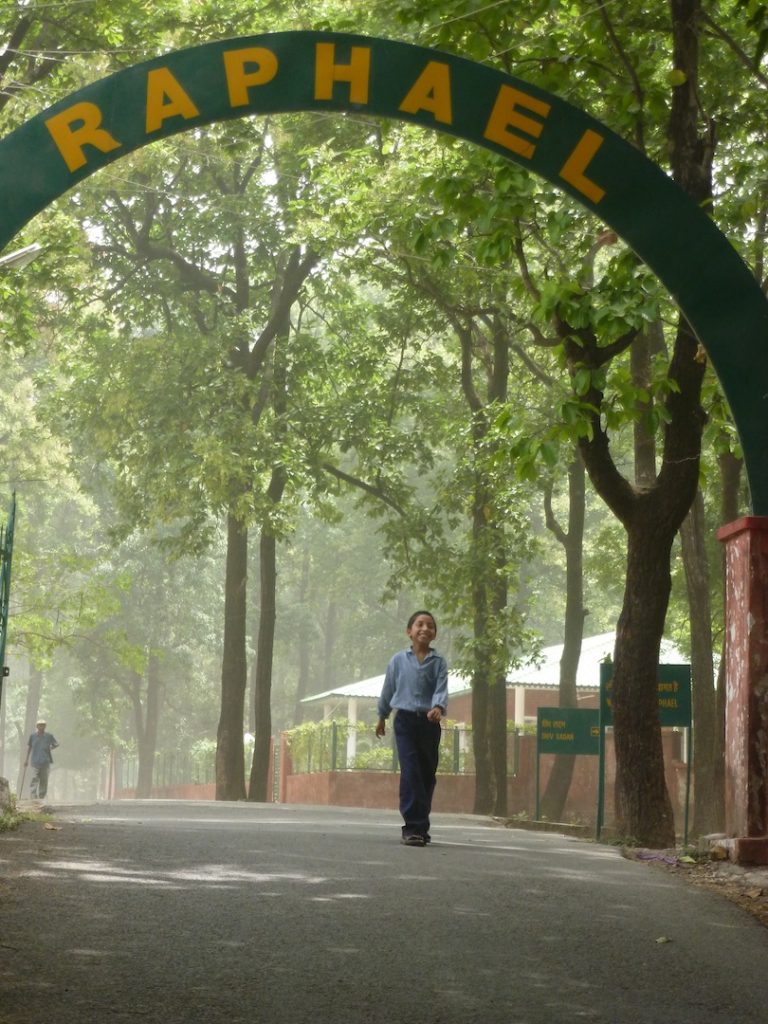Raphael, the Ryder-Cheshire Home in India

Raphael is a not for profit organisation dedicated to the Ryder-Cheshire mission for the relief of suffering without discrimination. At Raphael the focus is on caring for people with leprosy, tuberculosis (TB), multi-drug resistant TB (MDR-TB) and physical, intellectual and learning difficulties.
Raphael offers services free of charge, including accommodating around 200 people and providing day programs for more than 250 people. Raphael operates under its own local Board of Directors. Since its inception, Raphael has been supported by Ryder-Cheshire Foundations, Support Groups and volunteers from Australia, New Zealand and the UK.
Location and History
Raphael is located in the city of Dehradun, in the state of Uttarakhand in northern India. In 1959 Sue Ryder and Leonard Cheshire oversaw the establishment of Raphael in tents on a piece of land granted by the Indian Government. Situated by the banks of the Rispana River, Raphael is now a thriving community with well-maintained buildings and shady trees creating a peaceful setting.
Over the years, the activities and facilities have developed at Raphael and it is now recognised by the Indian Government as the State Nodal Agency for Persons with Autism, Cerebral Palsy and Multiple Disabilities. It is also recognised by the Indian Government as a study centre to conduct training programs in special education and its hospital is accredited in Uttarakhand as an approved diagnostic and treatment centre for TB. The community of Raphael, its services and individual staff members have received numerous awards from the Indian Government and from the State of Uttarakhand in recognition of their expertise and humanitarian work.
Vision
To alleviate human suffering by providing relief and rehabilitation facilities to those in need and to be a model centre of excellence in the chosen fields.
Mission and Service
The mission without discrimination is to provide relief in the fields of: Cured Leprosy, intellectual disabilities and TB The services provide relief and rehabilitation to those in need irrespective of caste, creed, or religion.